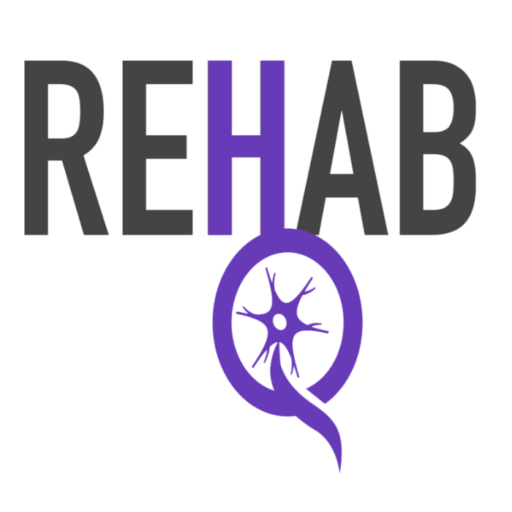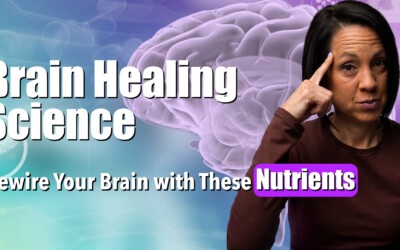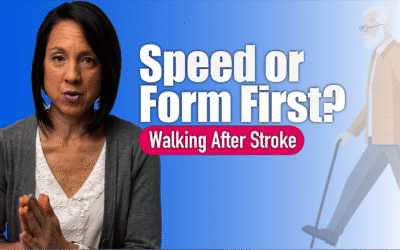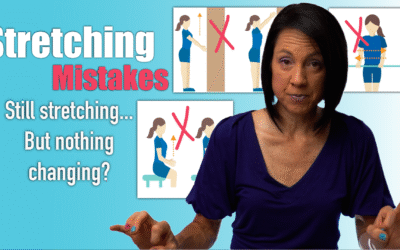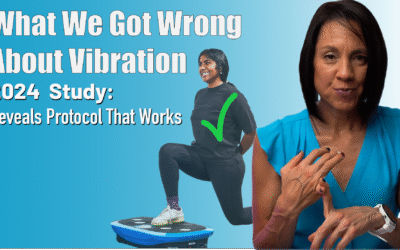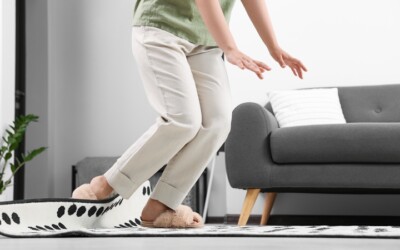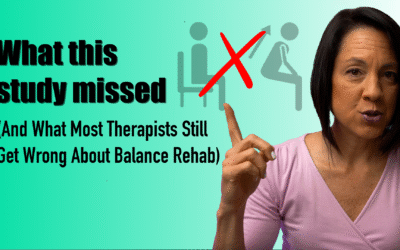Are You Missing the Nutrients That Help the Brain Heal Faster?
If you’re recovering from a stroke, you already know the process can feel slow, tiring, and confusing. You work hard on your exercises… but sometimes it still feels like your brain isn’t changing fast enough.
Here’s something most people never get told:
Your daily exercises aren’t the only thing that help your brain heal.
What you feed your brain may matter just as much as the exercises you do.
There are two nutrients that your brain leans on heavily after a stroke:
- Protein
- Creatine
How Protein Fuels Neurotransmitters
Protein (like chicken, eggs, beef, yogurt, or fish) is more than a food group, it’s the raw material your brain uses to communicate.
Here’s what makes it essential:
- It helps regulate appetite and blood sugar.
- It has a high thermic effect, meaning your body works harder to break it down.
- But most importantly for stroke recovery? Protein provides the amino acids that your brain uses to communicate, heal, and grow.
Those amino acids aren’t just floating around passively. They become neurotransmitters and growth factors, tiny chemical messengers and builders that your neurons rely to function.
Why Amino Acids Matter for Rewiring
After a stroke, your brain is working hard to build new pathways, almost like creating detours around damaged roads.
Amino acids give your brain the materials it needs to form new connections, strengthen the skills you practice in rehab, and support thinking, memory, and movement.
A few key examples:
- Dopamine (helps you stay motivated and focused)
- Serotonin (helps stabilize mood)
- Glutamate & GABA (help neurons turn signals “on” and “off” so learning and movement work properly)
When you’re rewiring your brain, learning to walk differently, speak differently, or coordinate new patterns, these neurotransmitters are the sparks and signals that help the new circuits form.
So yes, your repetitions matter.
But without protein?
You don’t have enough workers to build on the work you’re doing.
How Creatine Acts as the “Backup Battery” for Your Brain
Creatine often gets labeled as something only athletes use, but your brain depends on it too.
Your brain runs on energy called ATP. Every thought, every movement, every new connection uses ATP.
Here’s where creatine comes in:
- It helps your brain recharge ATP when energy runs low
- It supports learning and memory
- It gives your brain extra fuel during difficult tasks
Think of creatine as a portable charger you plug in when your brain is working hard, especially during rehab.
The important part:
Creatine only naturally comes from animal foods.
So if you don’t eat animal protein, you’re likely getting zero creatine from your diet. It’s a gap worth talking to your doctor about, especially during neurologic healing.
The REAL Connection Between Nutrition and Neuroplasticity
Protein gives your brain the building blocks, the scaffolding that supports new connections.
Creatine gives your brain the energy, the ability to power those connections into action.
Healing after a stroke isn’t about doing more all the time. It’s about doing the right things consistently and giving your brain what it needs to make the most of your efforts.
Neuroplasticity, the rewiring of the brain isn’t just about movement practice.
It’s about your brain having the energy and materials to make change happen.
Nutrition doesn’t replace rehab…
but it supports your rehab so your brain can make better progress.
Actionable Steps to Consider
1. Take an honest look at your protein intake.
Are you getting enough high-quality protein each day?
(Animal protein offers the full amino acid profile, but talk with your doctor or dietitian about what’s right for you.)
Try:
- Eggs
- Greek yogurt
- Cottage cheese
- Lean meats
- Fish
2. Ask your medical team about creatine.
A low-dose creatine monohydrate supplement is usually where people start.
Ask whether it’s safe for your kidneys, your medications, and your specific type of stroke.
3. Pair your nutrient support with intentional practice.
Once your brain has the raw materials and the energy, your therapy has a much better chance of sticking.
Choose one small movement or task that matters to you:
standing from a chair, stepping onto a curb, reaching into a cabinet
and practice it with intention.
4. Notice how you feel.
When your brain is well-fed, it often shows up in focus, attention, and energy.
Reflection Questions for Your Journey
What part of your recovery feels most “energy-draining” right now?
Could improved nutrition help support that?
Is there one small shift you could make this week, more protein with breakfast, or a conversation with your doctor, that could give your brain a little more fuel?
Does your current diet align with the healing your brain is trying to do?
If you’re ready for more structured guidance, feel free to explore our membership plans and take the next step toward the stronger, more confident version of yourself that’s waiting on the other side of this work. You can also schedule a discovery call to talk through your goals and challenges with someone who gets it.
Your brain is capable of more than you think.
Start fueling it like you believe that.
Articles you may be interested in
Best Foods for Brain Healing and Mental Clarity
Brain Recovery Nutrition How Diet Fuels Healing and Focus https://youtu.be/P5UJMJJRVdw When it comes to stroke recovery, exercise and rehab often take the spotlight. But what if the foods you eat and the nutrients inside them could also play a powerful role in healing...
Is Your Neuro Rehab Helping Your Recovery, or Making Things Worse?
The Real Impact of Neuro Rehab on Recovery https://youtu.be/YDgQc4p_atE Recovering after a stroke often involves long hours of rehabilitation. Neuro rehab programs are designed to retrain the brain and body, helping survivors regain independence. Understanding...
How Short Bursts of Exercise Boost Brain Healing
HIIT for Stroke Recovery Boost brain rewiring, improve movement, and speed recovery with short bursts of exercise. https://youtu.be/4SgXN2uRX8g If you’ve been on your stroke recovery journey for a while, you’ve probably heard the word neuroplasticity. Neuroplasticity...
Stretching Spastic Muscles: 8 Mistakes to Avoid
8 Common Stretching Mistakes in Stroke Recovery Why Your Stretching Might Be Making Spasticity Worse https://youtu.be/bBsM34HROYY If you’re dealing with spasticity after a neurologic injury, stretching might not be as straightforward as it seems. In fact, doing it the...
New Study: Vibration Plates Boost Balance After Stroke
It Just Vibrates… So Why Are Stroke Survivors Getting Better? The Truth Behind the Research https://youtu.be/GZgGsMjEgJQ When vibration plates first became popular, they reminded many of us of those old 1980s machines that promised to "shake" the fat away. Naturally,...
Walking “Tips” that Sabotage Post-Stroke Progress
Recovering from Stroke? Don’t Let These 7 Walking Mistakes Set You Back Better Walking Starts by Avoiding These Mistakes https://youtu.be/_nkjHLdOeLc Recovering your walking ability after a stroke is an incredible accomplishment. You’ve put in the work. Strengthening...
The Hidden Reason Your Walking Feels Off After Stroke Rehab
The Missing Link in Stroke Rehab: Why Strength Isn’t Enough How Plyometric Exercises Can Improve Your Post-Stroke Walking https://youtu.be/0xzcgTifCiM Recovering from a stroke is a journey that takes patience, effort, and persistence. Maybe you’ve been faithfully...
Struggling with Shoulder Pain After a Stroke? Here’s What Works
Why Does My Shoulder Hurt After a Stroke?Understanding the 6 Most Common Causes and What You Can Actually Do About Them Let’s be real — if you’re recovering from a stroke and your shoulder still hurts, it can feel really defeating. Especially if you’ve been doing “all...
Still Feeling Weak After Stroke? This Might Be Why
Doing the exercises… but still not getting stronger?You’re walking. You’re moving. Maybe even getting stronger.But everything still feels hard. Like walking across a room takes full concentration. Or standing up while talking feels like solving rocket science....
Stroke Recovery: Spasticity vs. Adaptive Shortening vs. Contracture
Stroke Recovery: Spasticity vs. Adaptive Shortening vs. Contracture Muscle tightness after stroke is common and can be the greatest barrier to restoring normal arm and leg movement. But not all tightness is the same. To treat it effectively, you need to understand...
